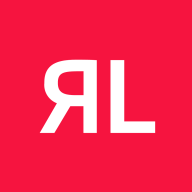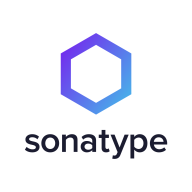

Sonatype Lifecycle and ReversingLabs operate in the software security and risk management field. Sonatype Lifecycle is noted for its affordability and comprehensive support, while ReversingLabs stands out due to its advanced threat detection features.
Features: Sonatype Lifecycle is valued for its comprehensive open-source security management, detailed vulnerability alerts, and integration capabilities with existing DevOps tools. ReversingLabs, on the other hand, is known for sophisticated threat intelligence, robust malware detection, and its focus on deep threat analysis.
Room for Improvement: Sonatype Lifecycle could enhance user interface simplicity, expand its integration with third-party applications, and improve its initial setup process. ReversingLabs might benefit from streamlining its complex deployment process, providing more intuitive user guidance, and offering more flexible pricing options.
Ease of Deployment and Customer Service: Sonatype Lifecycle provides straightforward cloud and on-premise deployment options with responsive customer support. ReversingLabs offers flexible deployment but can be more complex due to advanced features. Both platforms deliver strong client support, although ReversingLabs requires more time for setup.
Pricing and ROI: Sonatype Lifecycle is praised for its cost-effectiveness, offering a good return on investment through enhanced software security. ReversingLabs, though more expensive upfront, provides excellent ROI through its superior threat detection capabilities, making it suitable for organizations needing deep threat analysis.
| Product | Market Share (%) |
|---|---|
| Sonatype Lifecycle | 5.2% |
| ReversingLabs | 1.0% |
| Other | 93.8% |


| Company Size | Count |
|---|---|
| Small Business | 12 |
| Midsize Enterprise | 8 |
| Large Enterprise | 29 |
ReversingLabs is the trusted authority in software and file security. We provide the modern cybersecurity platform to verify and deliver safe binaries. Trusted by the Fortune 500 and leading cybersecurity vendors, the ReversingLabs Titanium Platform® powers the software supply chain and file security insights, tracking over 35 billion files daily with the ability to deconstruct full software binaries in seconds to minutes. Only ReversingLabs provides that final exam to determine whether a single file or full software binary presents a risk to your organization and your customers.
RL - Trust Delivered.
Sonatype Lifecycle is an open-source security and dependency management software that uses only one tool to automatically find open-source vulnerabilities at every stage of the System Development Life Cycle (SDLC). Users can now minimize security vulnerabilities, permitting organizations to enhance development workflow. Sonatype Lifecycle gives the user complete control over their software supply chain, allowing them to regain wasted time fighting risks in the SDLC. In addition, this software unifies the ability to define rules, actions, and policies that work best for your organizations and teams.
Sonatype Lifecycle allows users to help their teams discover threats before an attack has the chance to take place by examining a database of known vulnerabilities. With continuous monitoring at every stage of the development life cycle, Sonatype Lifecycle enables teams to build secure software. The solution allows users to utilize a complete automated solution within their existing workflows. Once a potential threat is identified, the solution’s policies will automatically rectify it.
Benefits of Open-source Security Monitoring
As cybersecurity attacks are on the rise, organizations are at constant risk for data breaches. Managing your software supply chain gets trickier as your organization grows, leaving many vulnerabilities exposed. With easily accessible source code that can be modified and shared freely, open-source monitoring gives users complete transparency. A community of professionals can inspect open-source code to ensure fewer bugs, and any open-source dependency vulnerability will be detected and fixed rapidly. Users can use open-source security monitoring to avoid attacks through automatic detection of potential threats and rectification immediately and automatically.
Reviews from Real Users
Sonatype Lifecycle software receives high praise from users for many reasons. Among them are the abilities to identify and rectify vulnerabilities at every stage of the SDLC, help with open-source governance, and minimize risk.
Michael E., senior enterprise architect at MIB Group, says "Some of the more profound features include the REST APIs. We tend to make use of those a lot. They also have a plugin for our CI/CD.”
R.S., senior architect at a insurance company, notes “Specifically features that have been good include:
• the email notifications
• the API, which has been good to work with for reporting, because we have some downstream reporting requirements
• that it's been really user-friendly to work with.”
"Its engine itself is most valuable in terms of the way it calculates and decides whether a security vulnerability exists or not. That's the most important thing. Its security is also pretty good, and its listing about the severities is also good," says Subham S., engineering tools and platform manager at BT - British Telecom.
We monitor all Software Composition Analysis (SCA) reviews to prevent fraudulent reviews and keep review quality high. We do not post reviews by company employees or direct competitors. We validate each review for authenticity via cross-reference with LinkedIn, and personal follow-up with the reviewer when necessary.